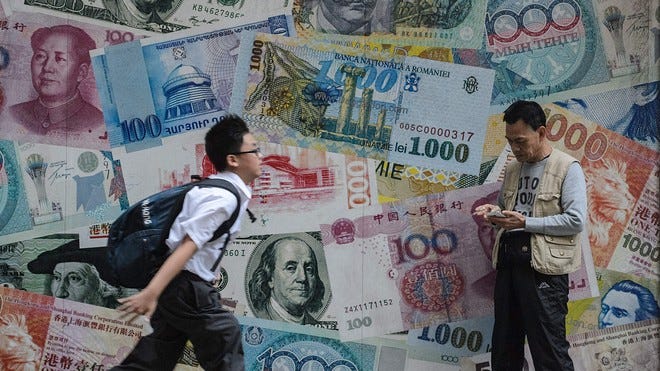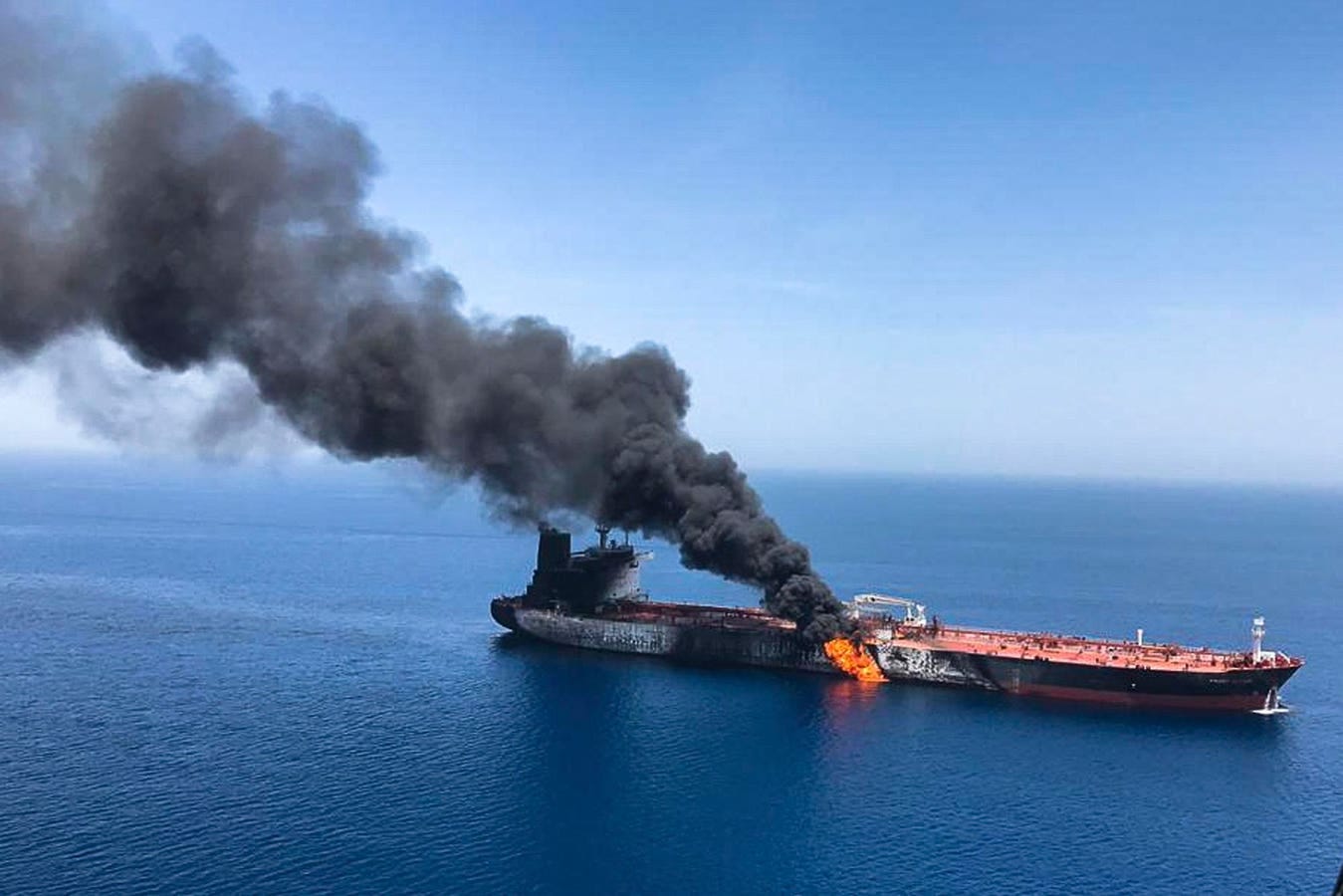Emerging Markets Monitor - April 16
China Growth Surges, EM Currencies Dropping, Israel Weighs Response to Iran Attack, Mexico Frontrunner Pledges Energy Investments, Middle East Shipping in Peril
The Top Stories Shaping Emerging Markets from Global Media - April 16
China GDP Jumps 5.3% in 1Q, Beating Estimates
Financial Times
"China’s gross domestic product grew 5.3 per cent in the first quarter against a year earlier, exceeding market expectations as Beijing tries to steer a manufacturing-led revival of the world’s second-largest economy.”
“The strong first-quarter growth rate, which compares with analyst forecasts of 4.6 per cent in a Reuters poll and an expansion of 5.2 per cent for the full year in 2023, follows mixed economic data in recent weeks.”
“…The government has set a GDP growth target of 5 per cent this year. But inflation fell below analysts’ estimates in March, indicating that deflationary pressures persist in China as policymakers try to stimulate domestic demand to offset a property sector crisis. Since 2021, the Chinese economy has grappled with a wave of real estate developer defaults that have weighed on construction activity and confidence in the market.”
“In recent weeks, market concerns have focused on state-linked Vanke amid continued weakness in home sales. Exports in the first quarter were also weaker in dollar terms, missing expectations. But analysts said export volumes have continued to expand as producers grab more global market share to boost revenue.” The FT reports.
Emerging Market Currencies Drop to 2024 Low After Iran’s Attack on Israel
Bloomberg
“Emerging-market currencies fell to a new low for the year as the dollar extended gains into a fifth day amid heightened geopolitical tensions and after robust US data boosted bets the Federal Reserve will delay interest-rate cuts.”
“The MSCI EM Currency Index dropped 0.2% on Tuesday to the lowest since December. The US currency got an extra boost in early Tuesday trading after China moved to weaken the daily reference rate for the yuan after sustained dollar pressure.”
“Haven demand for the greenback has also increased after Iran’s attack on Israel pushed conflict between the two countries into a perilous new phase.”
“Stronger-than-expected US economic data has damped bets on Fed rate cuts, suggesting the battle against dollar strength isn’t going to end anytime soon. That has led to an increase in currency intervention across emerging markets, especially Asia, as the dollar strength piles pressure on officials to act.”
“Bank Indonesia stepped in to support the rupiah on Tuesday after the currency weakened past 16,000 per dollar for the first time in four years. South Korea’s won dropped to the closely-watched psychological level of 1,400 per dollar for the first time since late 2022, while Malaysia’s ringgit is close to the lowest since 1998.” Bloomberg reports.
Israel Weighs Response to Iran Attack as Allies Urge Restraint
New York Times
“Israel’s war cabinet on Monday met to weigh possible responses to Iran’s missile and drone attack over the weekend, as the United States, Britain and other allies strongly urged Israel to show restraint and sought to de-escalate tensions between the two regional powers.”
“Some far-right members of Prime Minister Benjamin Netanyahu’s government called for a swift and forceful retaliation in response to Iran.”
“An Israeli official briefed on the cabinet discussions, speaking anonymously in order to talk about security matters, said several options were being considered, ranging from diplomacy to an imminent strike, but gave no further details. There was no immediate public statement by the ministers, or by the Israeli prime minister.”
“‘We are weighing our steps,’ Lt. Gen. Herzi Halevi, the Israeli military chief of staff, told Israeli soldiers on Monday in televised remarks during a visit to an Israeli air base. ‘The launching of so many missiles, cruise missiles and drones toward Israeli territory will be responded to.’”
“Mr. Netanyahu faces a delicate calculation — how to respond to Iran in order not to look weak, while trying to avoid alienating the Biden administration and other allies already impatient with Israel’s prosecution of the war in Gaza.”
“While the United States, Britain and France strongly condemned Iran’s assault and stepped in to help thwart it on Saturday, their calls for restraint highlighted the pressure Israel was facing to avoid a more direct confrontation with Iran.” The New York Times reports.
Mexico Frontrunner Pledges $13.6 B In Energy Investments
Reuters
“The favorite to win Mexico's presidential election in June, Claudia Sheinbaum, on Monday outlined a plan to invest $13.57 billion in new energy generation projects through 2030.”
“The ambitious program plans to increase wind and solar power generation and would modernize five hydroelectric plants. It would represent a significant shift from the policies of current President Andres Manuel Lopez Obrador, who since taking office in late 2018 has prioritized strengthening state oil company Pemex over renewables.”
"‘We have to speed up the promotion of renewable energies,’ Sheinbaum told a group of Mexican businessmen on Monday, where she specified that the new projects would add 13.66 gigawatts to the energy grid.”
"‘We are working on the national energy plan not only through 2030, but to 2050,’ Sheinbaum said, referring to the deadline set by international agreements on climate change. If she wins the June 2 election, the former Mexico City mayor will be the nation's first female president and will remain in office until 2030.” Reuters reports.
Middle East Tensions Trigger Surge in Shipping Risk Premiums, Concerns About Strait of Hormuz
Hellenic Shipping News
“In a significant escalation of tensions in the Middle East, Iran’s capture of the MSC Aries, a container ship linked to Israel, has reverberated throughout the maritime industry. This development, occurring prior to the missile attacks on Saturday, April 13, 2024, underscores the deepening conflict in the region.”
“As the situation unfolds, stakeholders are closely monitoring developments and preparing for potential impacts on global trade and shipping markets. The situation remains fluid, with potential shifts dependent on Israel’s response.”
“‘Regardless of immediate outcomes, we anticipate heightened uncertainty in shipping markets. This comes at a time when tensions have already been simmering since the end of November, particularly in the Bab-al-Mandab strait and the Red Sea. Now, the Strait of Hormuz emerges as a new focal point, with significant implications for Dubai, specifically Jebel Ali, a core transhipment hub in the region,’ shared Christian Roeloffs, cofounder and CEO of Container xChange, an online platform for global container trading and leasing.”
“‘The Strait of Hormuz’s strategic importance, coupled with its role as a key transit point for maritime traffic, emphasizes the significance of this latest escalation. Furthermore, the implications extend to major transhipment hubs like Jebel Ali in Dubai, amplifying the potential impact on regional trade and shipping operations.’”
“…Renowned as one of the world’s most strategically significant chokepoints, The Strait of Hormuz connects the Persian Gulf with the Gulf of Oman and the Arabian Sea, making it vital for global energy security. Any disruptions in the region can have immediate implications for global oil markets, affecting oil prices, shipping routes, and energy security worldwide.” Hellenic Shipping News reports.
“Be yourself; everyone else is already taken.” -Oscar Wilde







